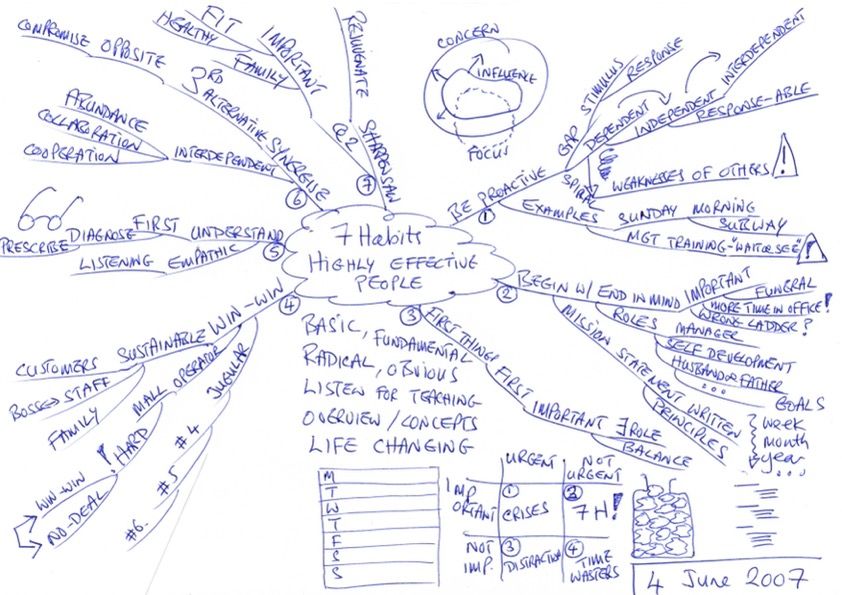13 - Choices and Decisions - who makes yours?

I have been really busy this week with work - albeit back in Madeira - so I had little time to read or do much other than work. In the coming weeks I should have more time - I am taking a few weeks off work and have quite a list of things to do.
First thing is to relax a bit and enjoy the pleasant weather here in Funchal for a few days. With 1st May tomorrow it does seem that there will be quite a bit to do..
Some food for thought for you. Who takes and makes your decisions? Do you make them yourself based on information that you have and know to be true or do you allow other people to take and make decisions for you? For example - do you allow governments or unaccountable beaureaucrats and others to decide for you and even to compell you?
In theory Governments should respect Consent of the Governed and the 1948 Universal Declaration of Human Rights states that "The will of the people shall be the basis of the authority of government". For you to decide if and to what extent governments today are acting in line with these principles. If not, what can you do about it? I dive into this below and do refer back to letter 9 - section: So What can you do about it.
First, a few things to read, watch and listen to
- I Finance the Current Thing by Allen Farrington - when money is political, everything is political...
- Prediction for 2030 (the Great Reset). Sorelle explains things pretty clearly if you care to watch and listen...
- The Global Pandemic Treaty: What You Need to Know . James Corbett is pretty clear too... is this being done with your support? Did you miss something?
- Why the Past 10 Years of American Life Have Been Uniquely Stupid - fascinating thinking on how quite a few recent things came about...
And a few classics - you ought to know these already and the important messages in them should be much more obvious now...
- 1984 by George Orwell - look for the perpetual war & conflict, ubiquitous surveillance and censorship not to mention Room 101
- Animal farm - also by George Orwell - note how the pigs end up living in the farmhouse exceeding all the worst behaviour of the farmer and how the constitution on the wall changes. Things did not end well for loyal Boxer.
- Brave New World by Aldous Huxley- A World State, inhabited by genetically modified citizens and an intelligence-based social hierarchy - the novel anticipates large scale psychological manipulation and classical conditioning that are combined to make a dystopian society which is challenged by only a single individual who does not take the Soma.
For more - refer to the References and Reading List
The 7 Habits of Highly Effective People
One of the most transformative books that I ever read was 7 Habits of Highly Effective People by Steven Covey. Over many years and from researching hstorical literature he found seven traits that successful people typically display. By default everyone does the opposite of each of these! Check how you do - be honest...
- Habits 1-3 are habits of Self - they determine how you behave and feel
- Habits 4-6 are habits of interpersonal behaviour - they determine how you deal with and interact with others
- Habit 7 is about regeneration and self care - foundation for happy and healthy life and success
One: Be proactive
Choose your responses to all situations and provocations - your reaction to a situation determines how you feel about it.
By default people will be reactive and this controls their emotions
Two: Begin with the end in mind
When you start to work on something, have a clear view of the goal to be achieved; it should be something substantial that you need and will value.
By default people will begin with what is in front of them or work on details that they can do or progress without having a clear view on the end result to be achieved
Three: Put First things First
Be clear on, and begin with, the Big Rocks- the most important things. If you do not put the Big Rocks into your planning daily activities, your days will be full of sand and gravel! All things can be categorised as Urgent or Not-Urgent and Important or Not-Important.
By Default people will focus on Urgent regardless of importance - all of the results come from focusing on Important Non-Urgent things. All of the 7 Habits are in this category!
Four: Seek Win-Win in all dealings with people and in all negotiations
This is the only sustainable outcome; if you cannot achieve Win-Win then no-deal is the sustainable alternative.
By default people will seek Win-Loose - this leads to failed relationships
Five: Seek first to understand - only then to be understood.
Once you visibly understand the needs and expectations of your counterpart they will be open to listening to your point of view and suggestions/requests - not before!
By default people will expound their point of view or desired result causing their counterpart to want to do the same - this ends in "the dialogue of the deaf"
Six: Synergise - Seek the 3rd alternative in all problems and challenges
Work together to find a proposal that is better than what each of you had in mind
By default people will focus on their own desired results and items, regardless of what the other party could bring to help/facilitate or make available
Seven: Sharpen the saw
Take time to re-invigorate and to be healthy - do nothing to excess. Do not be the forrester who persists in cutting the tree with a blunt saw bcause sharpening it is inconvenient or would "take too much time"!
By default people tend to persist on activities and avoid taking time to reflect, prepare and recover
Mindaps - a technique by Tony Buzan
Many years ago I summarised this in a Mind Map (another technique that was transformative for me - a topic for another Letter from around the world!) see below. Let me know if this interests you - happy to do an explainer video on this!

That's it!
No one can be told what The Matrix is.
You have to see it for yourself.
Do share this newsletter with any of your friends and family who might be interested.
You can also email me at: LetterFrom@rogerprice.me
💡Enjoy the newsletters in your own language : Dutch, French, German, Serbian, Chinese Traditional & Simplified, Thai and Burmese.
